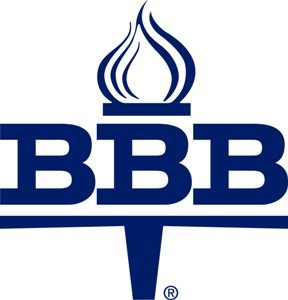 Statewide— According to the Better Business Bureau, home improvement scams can start with a knock on the door, a flyer, or a phone call. The contractor may offer a low price for a short timeframe. One common hook is when the scammer claims to be working in your neighborhood on another project and has leftover supplies.
Statewide— According to the Better Business Bureau, home improvement scams can start with a knock on the door, a flyer, or a phone call. The contractor may offer a low price for a short timeframe. One common hook is when the scammer claims to be working in your neighborhood on another project and has leftover supplies.
Once started, a rogue contractor may “find” issues that significantly raise the price. If you object, they threaten to walk away and leave a half-finished project. Or, they may accept your upfront deposit and then never return to do the job. Following a severe storm, scammers often persuade homeowners to sign over their insurance payment.
Tips for avoiding a home improvement scam:
- Research and gather information. Search for a contractor’s BBB Business Profile by clicking here. Also search for the name of the company online and the business owner’s name along with “Complaint”, “Review” or “Scam” to find what others are saying about the company. Ask the company if employees and sub-contractors undergo a background check. Are they trained and certified and by whom? What identification will they show when they come to your home?
- Watch out for “red flags.” Say no to cash-only deals, high-pressure sales tactics, high upfront payments, handshake deals and deals without a contract. BBB recommends a deposit of no more than 30%. Not all “storm chasers” are con artists, but enough are that you should be cautious any time a home contractor contacts you first. Don’t agree to any work without doing your homework.
- Verify license and insurance. Always be sure that the business you decide to work with has the necessary licenses and insurance to work in your area. Contact your local county courthouse to find out if licensing is required in your area and if so, verify the company’s licensing. Once you have your contractor’s insurance information, call the carrier to confirm appropriate coverage for worker’s compensation, property damage, and personal liability in case of accidents.
- Ask for references and check them out. Bad contractors will be reluctant to share this information and scammers won’t wait for you to do your homework. If you can, get references from past customers, both older references to check on the quality of the work and newer references to make sure current employees are up to the task.
- Get it in writing. Always get estimates in writing and never let any work begin without a written and signed contract. Do not be pressured into signing an agreement before you are ready and make sure you read and understand everything before signing. The contract should include contact information, start and completion dates, a detailed description of the exact work to be done, any material costs, payment arrangements, and warranty information. Specify who is to obtain necessary building permits and who is responsible for clean-up. Make sure all verbal promises are included in the contract. Ask how much work will be subcontracted and ask for information on the subcontractors. Ask questions if you do not understand any part of the contract. Never sign an incomplete or partially blank contract.
- Inquire about a lien waiver. A lien waiver relinquishes any future lien rights to the property for the amount paid should the business not pay their subcontractors or material suppliers.



